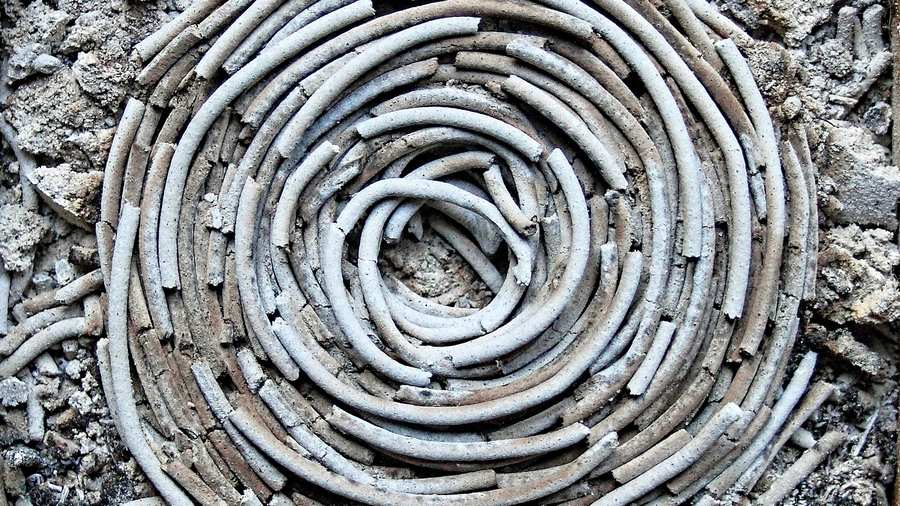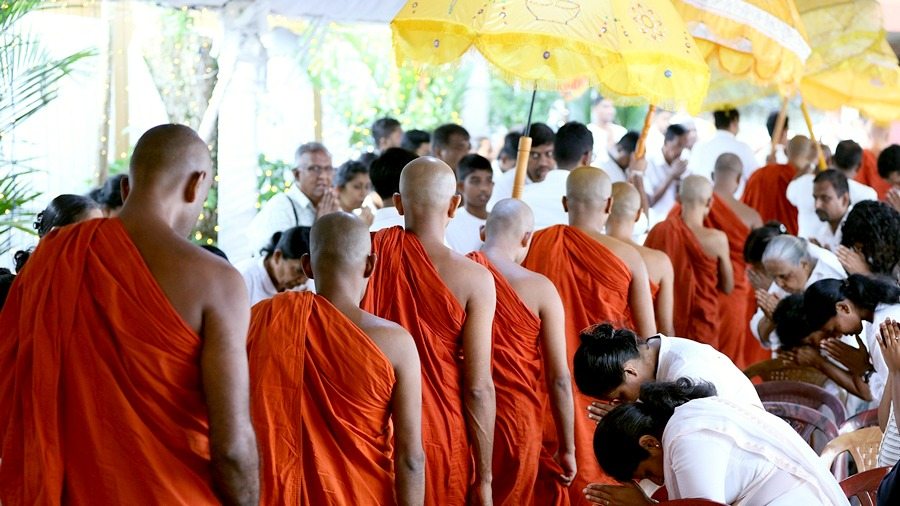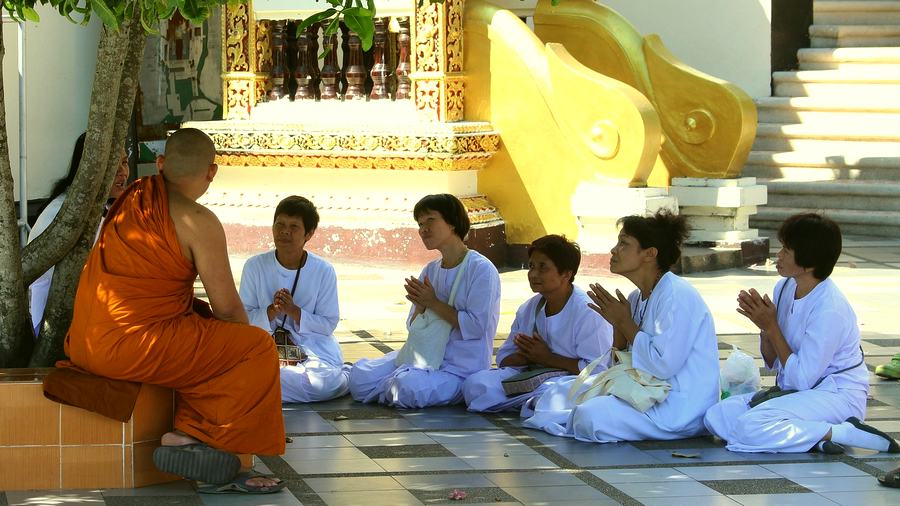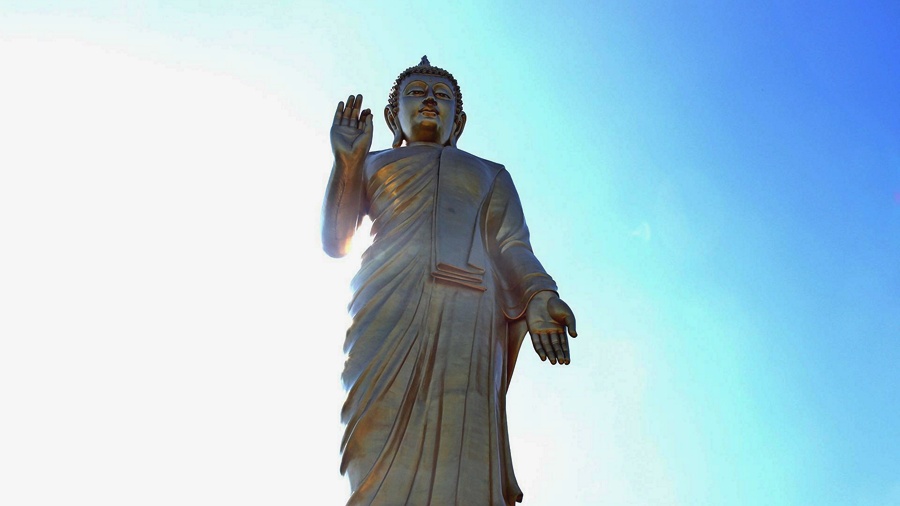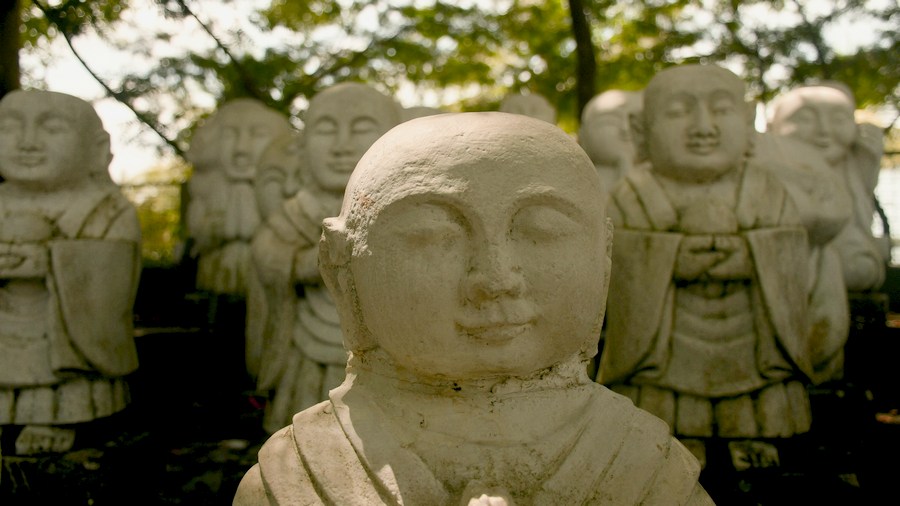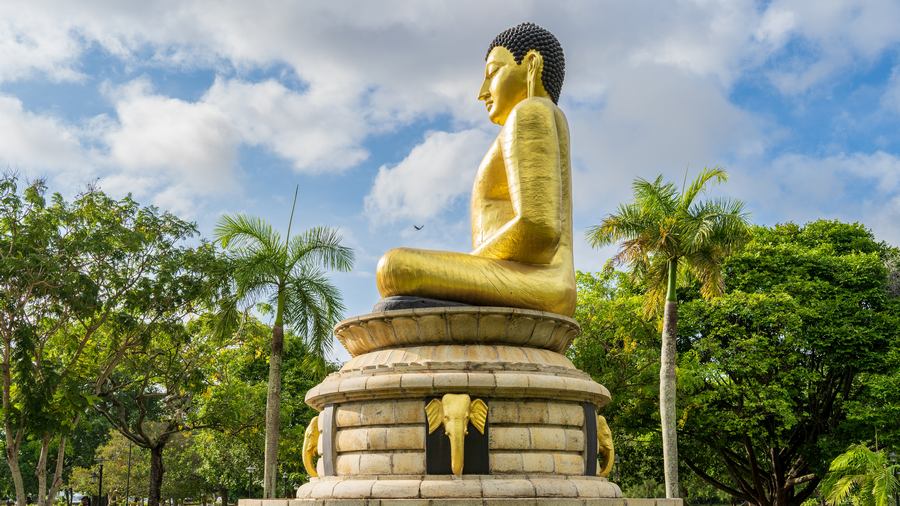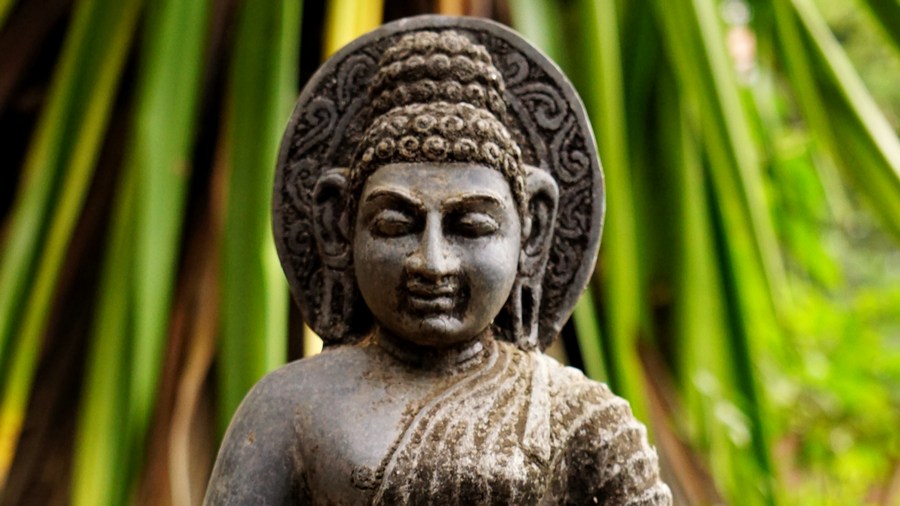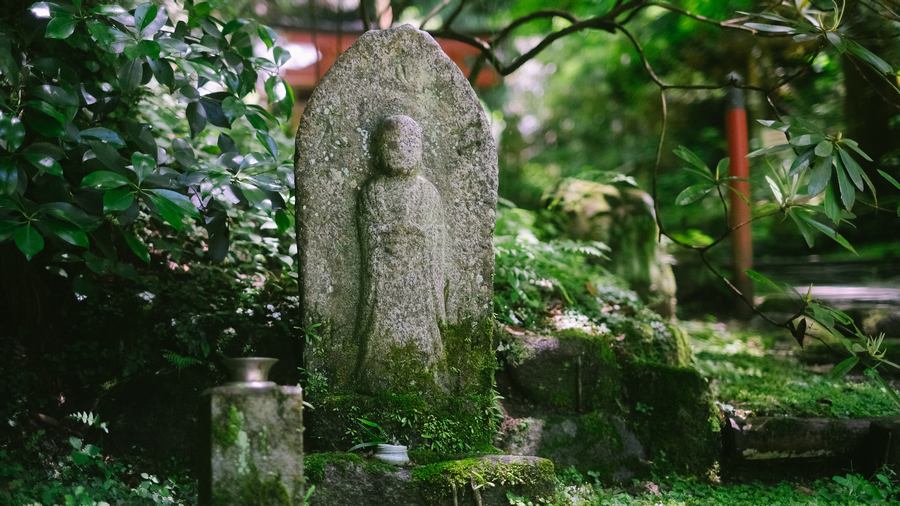This was said by the Lord, said by the Arahant, so I heard:
“Bhikkhus, there are these three foremost kinds of faith. What are the three?
“Whatever beings there are, whether footless or two-footed or four-footed, with form or without form, percipient or non-percipient or neither-percipient-nor-non-percipient, of these the Tathāgata is reckoned foremost, the Arahant, the Fully Enlightened One. Those who have faith in the Buddha have faith in the foremost, and for those with faith in the foremost the result will be foremost.
“Whatever states there are, whether conditioned or unconditioned, of these detachment is reckoned foremost, that is, the subduing of vanity, the elimination of thirst, the removal of reliance, the termination of the round (of rebirths), the destruction of craving, detachment, cessation, Nibbāna. Those who have faith in the Dhamma of detachment have faith in the foremost, and for those with faith in the foremost the result will be foremost.
“Whatever communities or groups there are, bhikkhus, of these the Sangha of the Tathāgata’s disciples is reckoned foremost, that is, the four pairs of persons, the eight individuals. This Sangha of the Lord’s disciples is worthy of gifts, worthy of hospitality, worthy of offerings, worthy of reverential salutation, the unsurpassable field of merit for the world. Those who have faith in the Sangha have faith in the foremost, and for those with faith in the foremost the result will be foremost.
“These, bhikkhus, are the three foremost kinds of faith.”
This is the meaning of what the Lord said. So in regard to this it was said:
This is foremost for those with faith,
For those who know the foremost Dhamma:
Having faith in the Buddha as foremost,
Worthy of offerings, unsurpassed;
Having faith in the Dhamma as foremost,
The peace of detachment, bliss;
Having faith in the Sangha as foremost,
A field of merit unsurpassed.
Distributing gifts among the foremost,
Foremost is the merit that accrues;
Foremost their life and beauty,
Fame, reputation, happiness, and strength.
The wise one who gives to the foremost,
Concentrated on the foremost Dhamma,
Whether he becomes a deva or a human,
Rejoices in his foremost attainment.
This too is the meaning of what was said by the Lord, so I heard.
Read this translation of Itivuttaka 90 Aggappasādasutta: Foremost Faith by John D. Ireland on SuttaCentral.net. Or read a different translation on SuttaCentral.net, SuttaFriends.org or DhammaTalks.org. Or listen on SC-Voice.net. Or explore the Pali on DigitalPaliReader.online.
Or read a translation in Deutsch, Català, Čeština, Français, Magyar, Italiano, 日本語, မြန်မာဘာသာ, Nederlands, Norsk, Português, Русский, සිංහල, or Srpski. Learn how to find your language.

